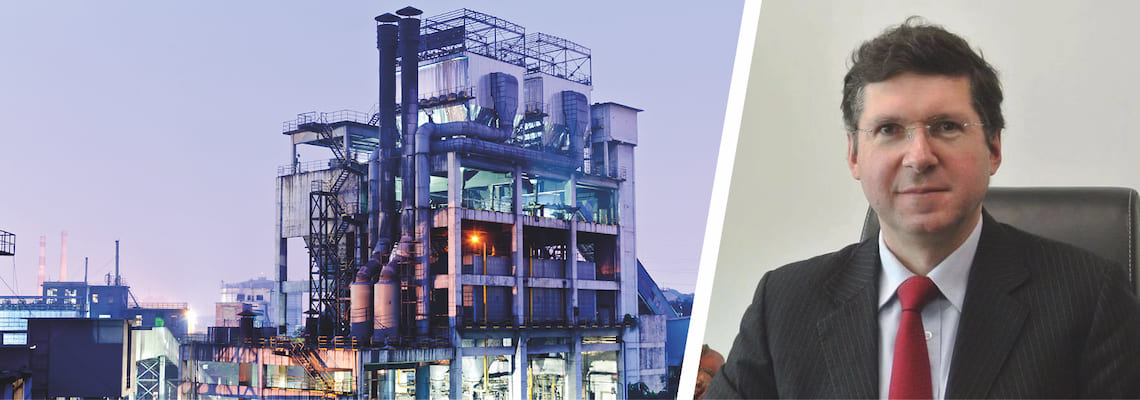Bruno Lhopiteau: A tale of two realities in China – risk prevention & maintenance
There are two fundamentally different approaches to risk management among water companies in China, writes Bruno Lhopiteau.
Law enforcement steps up against pollution
At the end of last year, a Singaporean environmental firm operating in China was fined a record 50M Chinese Yuan (US$7m) for the illegal discharge of wastewater. A total of 11 of its executives were jailed.
Industrial accidents have made headlines in China in the past decade, prompting local authorities to strengthen regulations and to significantly step up law enforcement.
As a result, treatment plants were forcibly shut down after failing environmental audits, and managers jailed for gross misconduct. On top of such dire legal consequences, the impact on revenue, stock price, image, is enormous.
“Incidents almost always stem from a lack of technical knowledge at both management and working levels.”
Investigations into wrongdoings or corruption have shown that incidents almost always stem from a lack of technical knowledge at both management and working levels. This includes decisions made without understanding their potential impact, or tasks performed without following proper procedures and methodology. This grassroots challenge is the most difficult to address.
Indeed, the comparatively late industrial development of the Chinese economy, compounded by the sheer size of the country and extremely rapid growth, has led to an acute shortage of experienced managers, engineers and skilled technicians. This is especially the case with the multi-disciplinary knowledge essential for maintenance.
Holistic versus silo approaches
Environmental firms must balance all aspects of this complex problem, especially in the context of increasing regulatory oversight and toughening market conditions. We observe two fundamentally different approaches to risk management among water companies in China.
The first I would characterize as “holistic”, often structured around a standard such as ISO55000 or ISO31000 that takes an integrated view of risk management, with maintenance playing a central role.
The Chinese government has been advocating digitalization since the late 1990s as a a supportive tool, in order to improve industrial practices. To an outsider, this approach looks like another “Smart Water” initiative, albeit one centered on risk prevention, encompassing a multidepartment, multidisciplinary scope.
“Improvements in IT too often include gimmicks such as facial recognition at entrance gates.”
The second approach I call the “silo” approach, featuring a shopping list of improvements in IT (too often gimmicks such as facial recognition at entrance gates), staff training, legal protection (for foreign firms it often involves putting a Chinese national in the top position...), process control systems.
To the untrained eye, this approach looks again like “Smart Water” but with a telltale architecture: a central data warehouse, replicating data from a variety of separate systems (maintenance, HSE, inspections, lab, environmental reporting), is used to produce management reports.
And the winner?
As maintenance consultants, we are sensitive to the fact that companies adopting the second approach tend to undervalue maintenance. They tell us that water treatment equipment is simple, employees are not well qualified, and they want a cheaper IT system for maintenance.
They do not agree on the central, multidisciplinary, role of maintenance and totally disconnect HSE from maintenance. Furthermore, results from official investigations showing technical management as the leading cause of accidents are often disregarded.
Which approach will come out the winner? My view is that, due to a wrong diagnosis, the “silo” approach is leaving the root cause of the problem unanswered, exposing those companies and the public they serve, to risk.
The Singaporean wastewater firm caught in the legal case mentioned earlier belonged to this category. So did several foreign firms that divested from China in the last few years.
On the other hand, companies adopting a holistic approach to risk prevention seem to be doing well and growing their business. In any case, my advice is for companies to look deeper into their smart water initiative to address the challenge of risk prevention.
Share your water technology stories with us
Do you have an innovation, research results or an other interesting topic you would like to share with the international water technology industry? The Aquatech website and social media channels are a great platform to showcase your stories!
Please contact our Sr Brand Marketing Manager Annelie Koomen.
Are you an Aquatech exhibitor?
Make sure you add your latest press releases to your Company Profile in the Exhibitor Portal for free exposure.
